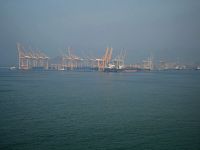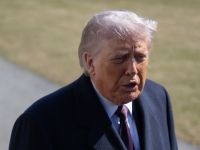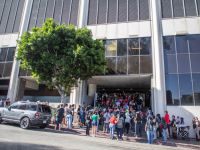The 2000 South Korean Import Motor Show was opened in Seoul this weekend, featuring imported cars from all over the world in a market dominated by the domestic manufacturers, apparently hoping to bolster dismal import sales, according to Reuters.
Reuters reported that organizers said 12 automakers were displaying 17 brands and about 90 models at the show, hoping to penetrate a market where for years a patriotic preference for domestic brands, combined with tariff barriers, has kept a lid on foreign car sales.
"We are glad to have such fancy cars like Ferrari and Porsche and Japanese cars exhibited. I hope this show will help eliminate bias against foreign cars," Son Eul-rae, chairman of the Korea Automobile Importers and Dealers Association (KAIDA), told Reuters.
Japan's Toyota and Honda are among participants who intend to gain a presence in the Korean market.
Foreign carmakers boycotted the Seoul Motor Show last year, complaining of discrimination after local car makers received preferential space and cheaper admission.
According to Reuters, some 910,000 vehicles were sold in South Korea last year, but only 2,401 were foreign -- a mere 0.26 percent of the total, compared to 21,046 vehicles South Korea's Hyundai exported to the United States last month alone.
South Korea was the seventh largest car-producing nation in the world last year, producing more than 2.8 million vehicles, of which 1.5 million were exported.
German luxury carmaker BMW snatched 43 percent of imported vehicle sales in Korea last year, becoming the largest car exporter to the country.
"We are not here in Korea for a short-term profit," Luder Paysen, a senior BMW global sales executive told Reuters. "We are investing in Korea for the long-term gain."
The German company, which displayed its Z8 and Z3 convertible sport cars along with luxury sedans, hoped its sales in Korea would rise to one percent of the Korean market by five years.
"The Korean market now is quite similar to the Japanese market about 20 years ago," Paysen said. "We expect everything will work out here as it did in Japan."
Rudolph Schlais, president of General Motors Corp.'s Asia-Pacific operations, said South Korea's non-tariff barriers such as tax audits on buyers of imported cars were still frustrating sales by foreign carmakers in the Korean market.
"Korea needs to open the market. There are still continuing restrictions, such as tax audits on consumers buying luxury imported cars," he said. "The Korean government needs to understand the need of the free market."
Importers of foreign cars said the fair market share for imported vehicles should be more than five percent given the current size of the economy and status of the Korean car industry, but they said sales of imported vehicles are expected to reach only 5,000 units this year and about 10,000 vehicles in 2002 in the best scenario they can imagine.
Japanese makers remained still careful about advancing fully into the Korean market, although Korea opened up its market to Japanese cars last year.
"The Korean market for imported cars is significantly small," said Horoshi Mikajiri, a Honda spokesman. "We will decide what we will do here after feasibility studies."
Toyota spokesman Tetsuo Kitagawa said his company set up a wholly-owned firm in Korea with paid-in capital of nine billion won ($8 million) in March for sales of its cars.
"We will open three sales outlets in Korea by the end of this year and we will begin sales from 2001," Kitagawa said. He added Toyota plans to sell 800 vehicles in Korea next year – (Several Sources).
© 2000 Al Bawaba (www.albawaba.com)







